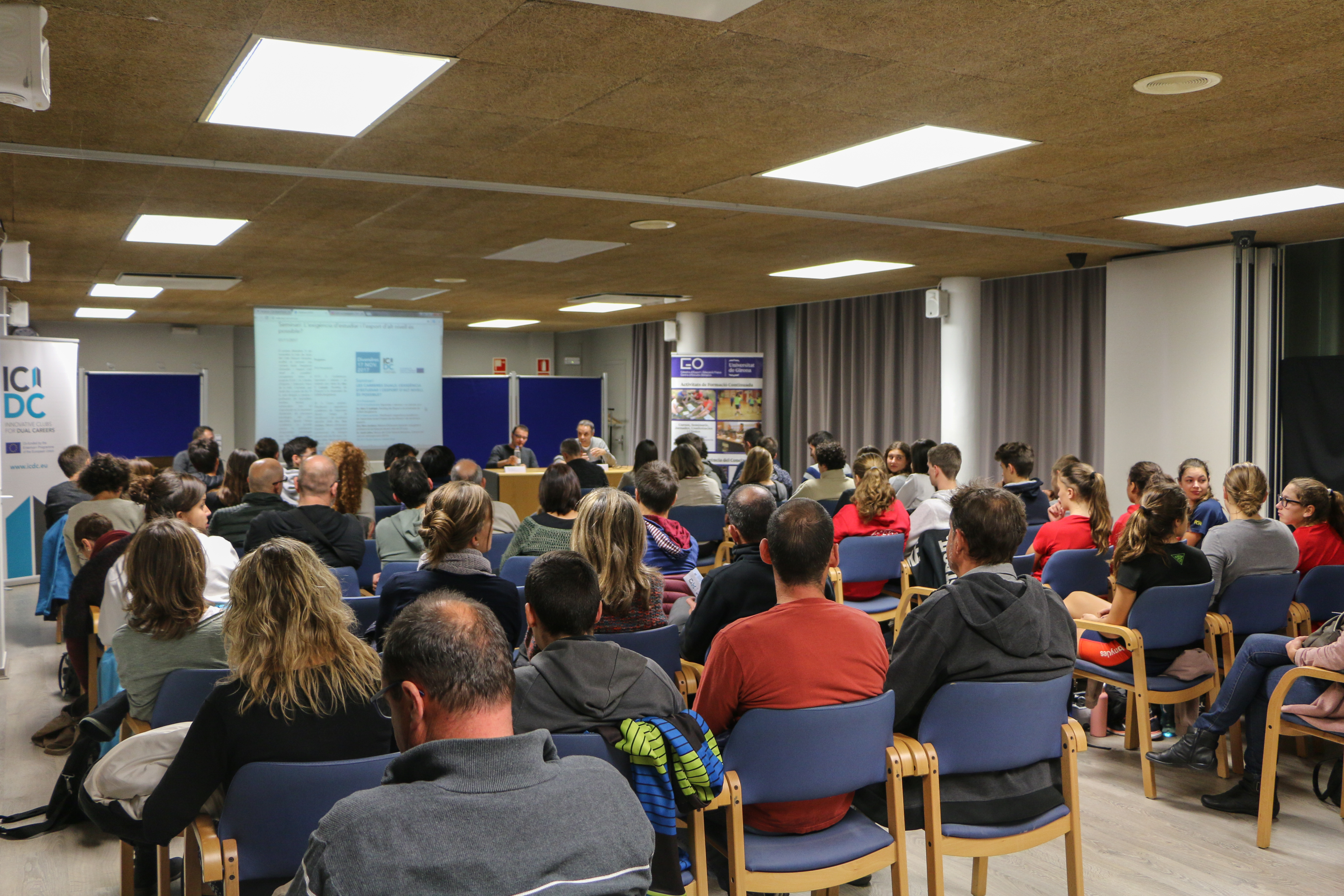On Friday, November 17, the Dual Careers Seminar organized by the ICDC project and co-organized with the Càtedra d'Esports i Educació Física de la UdG took place. It was on the subject: Is it possible to combine high level sport and high level studies?. During the event, in which a hundred people participated, we listened to the experiences of athletes and different points of view, such as Dr. Alexander T. Latinjak, sports psychologist at the University of Suffolk (England) ). Latinjak said that, on a cognitive and nervous level, learning is more productive with a single training session and recommends not carrying out a double load of training (morning and afternoon) because the second one overwrites the knowledge acquired in the first. He also stated that the dual career can involve the risk of separating the person: the athlete and the student: "They are not different individuals, the two areas are mutually affected and complement each other". According to the psychologist, if you study and then practice high-intensity sports (20-30 min) you learn significantly better, since sport balances and predisposes the brain. Finally, he assures that the subject of physical education in the school should not be validated to the high level athletes.
The teacher and ex-basketball player Noemí Jordana also participated in the seminar. She explained her experience to the assistants. In her case, he thanked the fact of going to a high performance center for the facilities that supposed to have everything in one place (educational center, home, sport, doctors, psychologists ...). For her, getting to the university was a blow of reality since she had to face what it really means to pursue a dual career. She considers very important the volunteer of the athlete to do things, not wanting to be given anything: "Do not seek help, seek to make things easier, such as if you have a competition, allow him to do the exam before and not after " Likewise, he has appreciated the help of the classmates and how the teachers facilitated her work. Anyway, according to her, the athlete has to be aware of their limits, and know when to withdraw: "If you have to do the degree in more time, you do not have to feel bad".
Finally, the rower Banyoles CN and remergometer world champion (2014) Jordi Jofre ensures that the dual career provides two different points of view to solve new problems. He emphasizes that sport allows him to meet people and different cultures: "The feeling of sharing goals in a world cup with the most direct competitors is an incredible experience". He also states that rowing has allowed him to improve his concentration and his studies, which in short, the sport has made him improve his academic performance. Finally, he adds that you have to learn to organize time, and avoid distractions.
